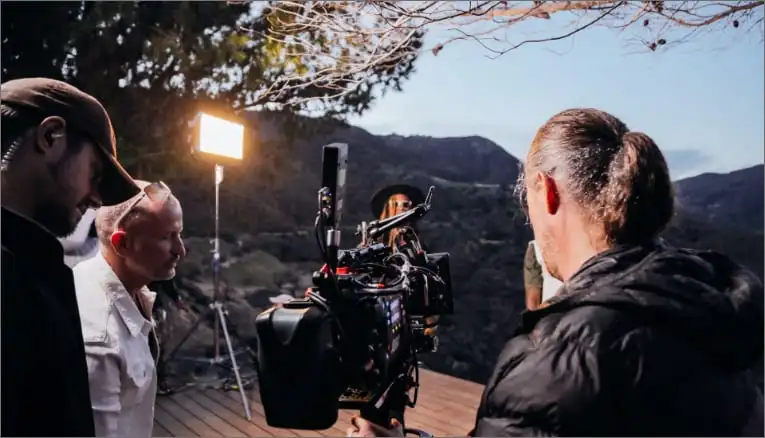Television writing jobs are highly sought after in the entertainment industry, offering creative individuals the opportunity to contribute to captivating storytelling on the small screen. From crafting engaging scripts to shaping compelling narratives, television writers play a crucial role in bringing television shows to life. In this comprehensive guide, we will explore the top 10 career paths in the television industry, shedding light on the diverse roles available to aspiring television writers.
1. Television Writer
At the heart of every successful television show is a talented television writer who is responsible for developing engaging scripts and captivating storylines. Television writers work closely with showrunners and producers to bring characters to life, create compelling dialogue, and craft plot twists that keep viewers on the edge of their seats. A keen understanding of character development, pacing, and genre conventions is essential for excelling in this role.
2. Showrunner
The showrunner is the creative force behind a television series, overseeing all aspects of production and ensuring the show maintains its artistic vision and narrative coherence. Showrunners collaborate with writers, directors, and actors to shape the overall direction of the series, making critical decisions about story arcs, character development, and thematic elements. Strong leadership skills, creative vision, and a deep understanding of storytelling are essential for success as a showrunner.
3. Script Coordinator
Script coordinators play a vital role in the television production process, supporting the writing team by managing script revisions, coordinating script distribution, and ensuring continuity across episodes. Script coordinators work closely with writers, editors, and production staff to streamline the script approval process and maintain accurate script documentation. Attention to detail, organizational skills, and a strong grasp of script formatting are key attributes for this role.
4. Story Editor
Story editors collaborate with writers to refine story ideas, develop plotlines, and provide constructive feedback on script drafts. Story editors help shape the narrative direction of a television series, offering creative input on character arcs, thematic resonance, and storytelling techniques. Strong communication skills, a keen eye for detail, and a deep appreciation for storytelling are essential for excelling as a story editor.
5. Staff Writer
Staff writers are integral members of the writing team, contributing ideas, writing episodes, and collaborating with fellow writers to ensure the overall quality and consistency of the series. Staff writers work under the guidance of senior writers and showrunners, honing their craft, and developing their storytelling skills. Creativity, adaptability, and a passion for television writing are essential qualities for success as a staff writer.
6. Executive Producer
Executive producers oversee the creative and business aspects of television production, working closely with networks, studios, and creative teams to ensure the success of a television series. Executive producers play a key role in securing funding, making strategic decisions about casting and marketing, and guiding the overall creative direction of the show. Strong leadership skills, industry knowledge, and a track record of successful productions are essential for excelling as an executive producer.
7. Development Executive
Development executives work for production companies or networks, scouting new talent, evaluating script submissions, and developing new television projects. Development executives play a crucial role in identifying promising scripts, nurturing emerging writers, and shaping the creative direction of upcoming series. Strong analytical skills, industry expertise, and a passion for discovering new voices are essential for success as a development executive.
8. Television Director
Television directors collaborate with writers, actors, and production crews to bring scripts to life on screen, overseeing the visual and dramatic aspects of television production. Television directors work closely with show creators to interpret scripts, block scenes, and capture the emotional essence of a story. Strong communication skills, visual storytelling acumen, and a collaborative spirit are essential for success as a television director.
9. Casting Director
Casting directors play a critical role in the television production process, selecting actors for roles, organizing auditions, and collaborating with producers and directors to assemble the perfect cast. Casting directors have a keen eye for talent, a thorough understanding of character dynamics, and the ability to match actors with roles that showcase their strengths. Strong interpersonal skills, industry connections, and a passion for storytelling are essential for excelling as a casting director.
10. Production Designer
Production designers are responsible for creating the visual aesthetic of a television series, including sets, costumes, and props. Production designers work closely with show creators to establish the look and feel of a show, ensuring that the visual elements align with the narrative tone and character personalities. Creativity, attention to detail, and a strong sense of visual storytelling are essential for success as a production designer.
Conclusion
In the competitive world of television writing jobs, aspiring writers have a wealth of career paths to explore, each offering unique opportunities for growth and creative expression. Whether you dream of crafting compelling scripts, shaping captivating storylines, or overseeing the production of a hit series, the television industry presents a myriad of possibilities for talented storytellers.
Key Takeaways:
- Roles such as television writer, showrunner, script coordinator, and story editor are crucial in bringing television shows to life.
- Staff writers, executive producers, and development executives play key roles in shaping the creative direction of television series.
- Television directors, casting directors, and production designers contribute to the visual and dramatic aspects of television production.
Consider enhancing your television writing skills by enrolling in the NYU Modern Screen Writing online course and certificate program. Elevate your storytelling abilities and refine your scriptwriting techniques to excel in the dynamic world of television writing jobs.







